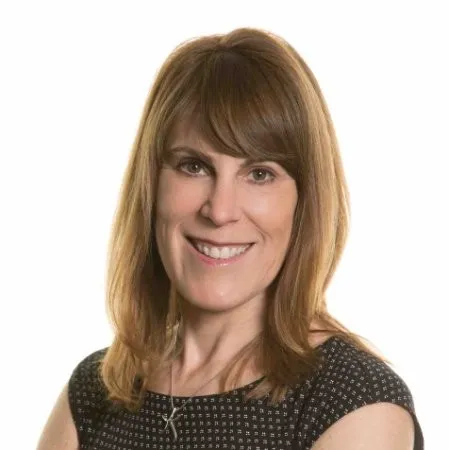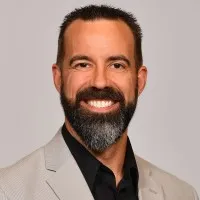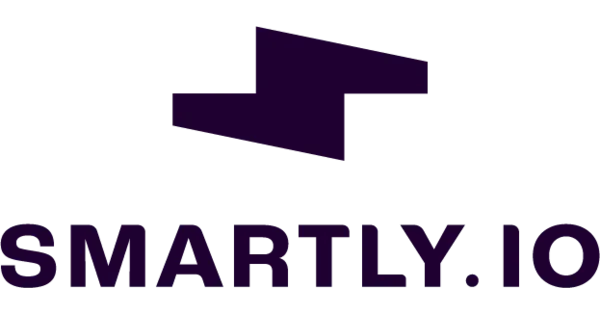I’ve spent the past five+ years in a customer-facing role as a Solutions Engineer. When I embarked on my PreSales journey, initially I joined an organization where the GTM engine was already thriving and running. The company was growing at a fast pace. With targets on every team’s head month after month, we were trained on the product and had to hit the floor running to start solving customer problems.
That experience taught me a lot, but there were still so many lessons I needed to learn to become a better Solutions Engineer.
For starters, what differentiates an extraordinary SE from an ordinary SE is that they have empathy, listen to customers, understand the to-be and as-is states, and pass the right feedback to the product team.
When I left that organization and began my role at an early-stage startup, I quickly discovered that in many ways, this new environment was going to impact my career more than any formal training program or professional development course I could. In fact, joining this early-stage startup was one of the best decisions I’ve made in my life.
The on-the-job experience that I’ve gained has made me a better SE – and a better professional overall. Here are some reflections on what I’ve learned so far.
1. Listening to Customers Makes You a Better SE
When I joined the early-stage startup, the product was in the final stages of its build phase gearing for a beta launch and the first task was to take demos to our ICPs (Ideal Customer Profile), Influencers etc., using mocks (since the product was still being built) to confirm and make sure we were indeed solving the right problems.
Trust me, if you handle 20+ validation demos, you will gain every essential skill required for a customer-facing role.
Why? For starters, these kinds of demos are wholly about the customer, not the organization. My approach on the validation demos wasn’t to boast about our solutions, but to share a little about what we were developing and gather customer feedback.

Understanding the customer’s point of view required me to exercise empathy. I learned how to be a better listener by asking open-ended questions, as I genuinely had to understand their perspective in order to pass their feedback along to the product team.
Here is how I applied this knowledge to my SE role: at the end of the day, we need to make sure we are building the right functionalities based on what customers actually need – not based on our assumptions about what customers need.
2. Getting Your Hands Dirty is a Good Thing
In true startup fashion, tackling validation demos was just one of the many additional responsibilities that I took on in my early days as an SE. There was also product marketing to create, videos to produce, testing to be done, and so much more. I rolled up my sleeves and happily accepted each request that came my way, since we were always in a race against time to accomplish our long list of goals in the early days.

It’s only a slight exaggeration to say that in a startup, each team member serves as an IC, PM, CEO, CTO, and head of facilities at some point. Wearing so many hats means there are plenty of opportunities to make decisions and problem-solve.
Sometimes “other duties as assigned” are as simple as selecting a vendor in Fiverr to get a voiceover recorded (which is surprisingly challenging). Or, they are as complex as setting up a tool stack for a top-notch customer experience that can also scale. These types of tasks have a way of making a person very resourceful!
3. Learning is One of the Perks
I’ve learned so much through “on-the-job-training” at this early-stage startup. Becoming a better listener with my customers helped me learn how to listen to my colleagues. I took in their ideas, their problems, and their points of view. I gained so much by opening myself up in this way.

I became more patient – I realized that it was a waste of time to feel frustrated with another team’s (read: Dev’s) work (read: bugs). I pointed out issues in a tactful way and trusted them to do their best to fix them. I began to appreciate the fact that, at a startup, everyone just wants to experiment, do things a bit differently, and make their mark.
When I look back, I realize that I picked up valuable lifelong skills and lessons, such as:
- Trust that others know what they are doing
- Take full ownership of what you do
- Always be transparent and honest
- Take setbacks and minor annoyances in stride
Working in a startup provides so much hands-on experience that it's practically like earning an MBA. For me, working at an early-stage startup has been a happy, exhilarating, enriching, and rewarding experience – one that I highly recommend.
I’ve spent the past five+ years in a customer-facing role as a Solutions Engineer. When I embarked on my PreSales journey, initially I joined an organization where the GTM engine was already thriving and running. The company was growing at a fast pace. With targets on every team’s head month after month, we were trained on the product and had to hit the floor running to start solving customer problems.
That experience taught me a lot, but there were still so many lessons I needed to learn to become a better Solutions Engineer.
For starters, what differentiates an extraordinary SE from an ordinary SE is that they have empathy, listen to customers, understand the to-be and as-is states, and pass the right feedback to the product team.
When I left that organization and began my role at an early-stage startup, I quickly discovered that in many ways, this new environment was going to impact my career more than any formal training program or professional development course I could. In fact, joining this early-stage startup was one of the best decisions I’ve made in my life.
The on-the-job experience that I’ve gained has made me a better SE – and a better professional overall. Here are some reflections on what I’ve learned so far.
1. Listening to Customers Makes You a Better SE
When I joined the early-stage startup, the product was in the final stages of its build phase gearing for a beta launch and the first task was to take demos to our ICPs (Ideal Customer Profile), Influencers etc., using mocks (since the product was still being built) to confirm and make sure we were indeed solving the right problems.
Trust me, if you handle 20+ validation demos, you will gain every essential skill required for a customer-facing role.
Why? For starters, these kinds of demos are wholly about the customer, not the organization. My approach on the validation demos wasn’t to boast about our solutions, but to share a little about what we were developing and gather customer feedback.

Understanding the customer’s point of view required me to exercise empathy. I learned how to be a better listener by asking open-ended questions, as I genuinely had to understand their perspective in order to pass their feedback along to the product team.
Here is how I applied this knowledge to my SE role: at the end of the day, we need to make sure we are building the right functionalities based on what customers actually need – not based on our assumptions about what customers need.
2. Getting Your Hands Dirty is a Good Thing
In true startup fashion, tackling validation demos was just one of the many additional responsibilities that I took on in my early days as an SE. There was also product marketing to create, videos to produce, testing to be done, and so much more. I rolled up my sleeves and happily accepted each request that came my way, since we were always in a race against time to accomplish our long list of goals in the early days.

It’s only a slight exaggeration to say that in a startup, each team member serves as an IC, PM, CEO, CTO, and head of facilities at some point. Wearing so many hats means there are plenty of opportunities to make decisions and problem-solve.
Sometimes “other duties as assigned” are as simple as selecting a vendor in Fiverr to get a voiceover recorded (which is surprisingly challenging). Or, they are as complex as setting up a tool stack for a top-notch customer experience that can also scale. These types of tasks have a way of making a person very resourceful!
3. Learning is One of the Perks
I’ve learned so much through “on-the-job-training” at this early-stage startup. Becoming a better listener with my customers helped me learn how to listen to my colleagues. I took in their ideas, their problems, and their points of view. I gained so much by opening myself up in this way.

I became more patient – I realized that it was a waste of time to feel frustrated with another team’s (read: Dev’s) work (read: bugs). I pointed out issues in a tactful way and trusted them to do their best to fix them. I began to appreciate the fact that, at a startup, everyone just wants to experiment, do things a bit differently, and make their mark.
When I look back, I realize that I picked up valuable lifelong skills and lessons, such as:
- Trust that others know what they are doing
- Take full ownership of what you do
- Always be transparent and honest
- Take setbacks and minor annoyances in stride
Working in a startup provides so much hands-on experience that it's practically like earning an MBA. For me, working at an early-stage startup has been a happy, exhilarating, enriching, and rewarding experience – one that I highly recommend.
I’ve spent the past five+ years in a customer-facing role as a Solutions Engineer. When I embarked on my PreSales journey, initially I joined an organization where the GTM engine was already thriving and running. The company was growing at a fast pace. With targets on every team’s head month after month, we were trained on the product and had to hit the floor running to start solving customer problems.
That experience taught me a lot, but there were still so many lessons I needed to learn to become a better Solutions Engineer.
For starters, what differentiates an extraordinary SE from an ordinary SE is that they have empathy, listen to customers, understand the to-be and as-is states, and pass the right feedback to the product team.
When I left that organization and began my role at an early-stage startup, I quickly discovered that in many ways, this new environment was going to impact my career more than any formal training program or professional development course I could. In fact, joining this early-stage startup was one of the best decisions I’ve made in my life.
The on-the-job experience that I’ve gained has made me a better SE – and a better professional overall. Here are some reflections on what I’ve learned so far.
1. Listening to Customers Makes You a Better SE
When I joined the early-stage startup, the product was in the final stages of its build phase gearing for a beta launch and the first task was to take demos to our ICPs (Ideal Customer Profile), Influencers etc., using mocks (since the product was still being built) to confirm and make sure we were indeed solving the right problems.
Trust me, if you handle 20+ validation demos, you will gain every essential skill required for a customer-facing role.
Why? For starters, these kinds of demos are wholly about the customer, not the organization. My approach on the validation demos wasn’t to boast about our solutions, but to share a little about what we were developing and gather customer feedback.

Understanding the customer’s point of view required me to exercise empathy. I learned how to be a better listener by asking open-ended questions, as I genuinely had to understand their perspective in order to pass their feedback along to the product team.
Here is how I applied this knowledge to my SE role: at the end of the day, we need to make sure we are building the right functionalities based on what customers actually need – not based on our assumptions about what customers need.
2. Getting Your Hands Dirty is a Good Thing
In true startup fashion, tackling validation demos was just one of the many additional responsibilities that I took on in my early days as an SE. There was also product marketing to create, videos to produce, testing to be done, and so much more. I rolled up my sleeves and happily accepted each request that came my way, since we were always in a race against time to accomplish our long list of goals in the early days.

It’s only a slight exaggeration to say that in a startup, each team member serves as an IC, PM, CEO, CTO, and head of facilities at some point. Wearing so many hats means there are plenty of opportunities to make decisions and problem-solve.
Sometimes “other duties as assigned” are as simple as selecting a vendor in Fiverr to get a voiceover recorded (which is surprisingly challenging). Or, they are as complex as setting up a tool stack for a top-notch customer experience that can also scale. These types of tasks have a way of making a person very resourceful!
3. Learning is One of the Perks
I’ve learned so much through “on-the-job-training” at this early-stage startup. Becoming a better listener with my customers helped me learn how to listen to my colleagues. I took in their ideas, their problems, and their points of view. I gained so much by opening myself up in this way.

I became more patient – I realized that it was a waste of time to feel frustrated with another team’s (read: Dev’s) work (read: bugs). I pointed out issues in a tactful way and trusted them to do their best to fix them. I began to appreciate the fact that, at a startup, everyone just wants to experiment, do things a bit differently, and make their mark.
When I look back, I realize that I picked up valuable lifelong skills and lessons, such as:
- Trust that others know what they are doing
- Take full ownership of what you do
- Always be transparent and honest
- Take setbacks and minor annoyances in stride
Working in a startup provides so much hands-on experience that it's practically like earning an MBA. For me, working at an early-stage startup has been a happy, exhilarating, enriching, and rewarding experience – one that I highly recommend.






.webp)


